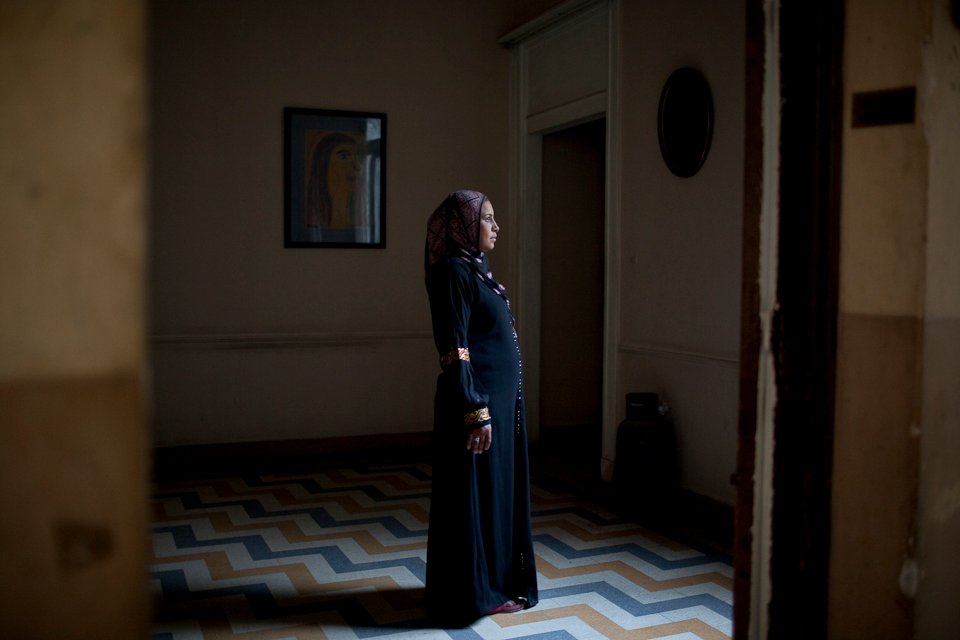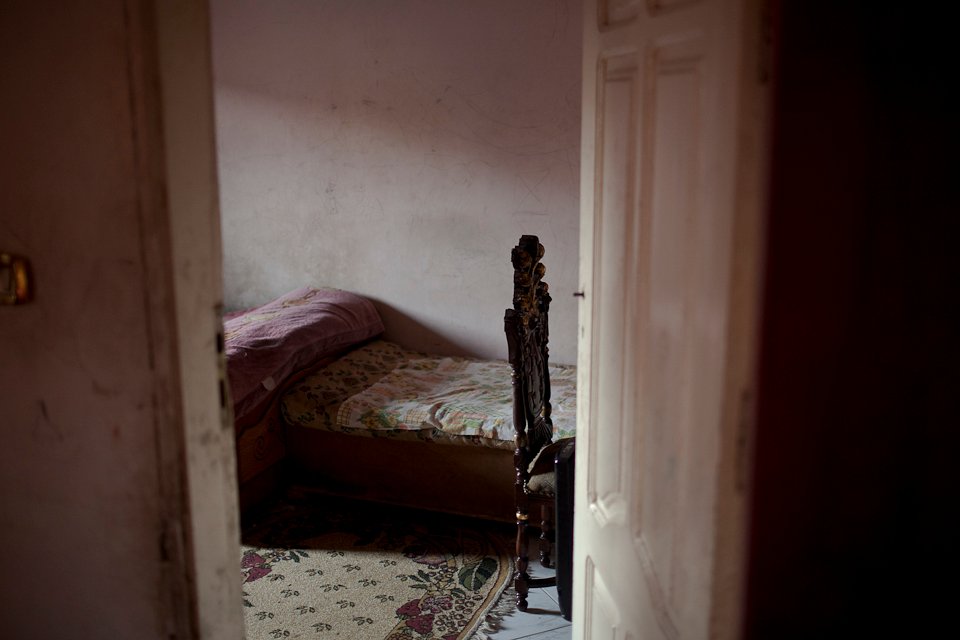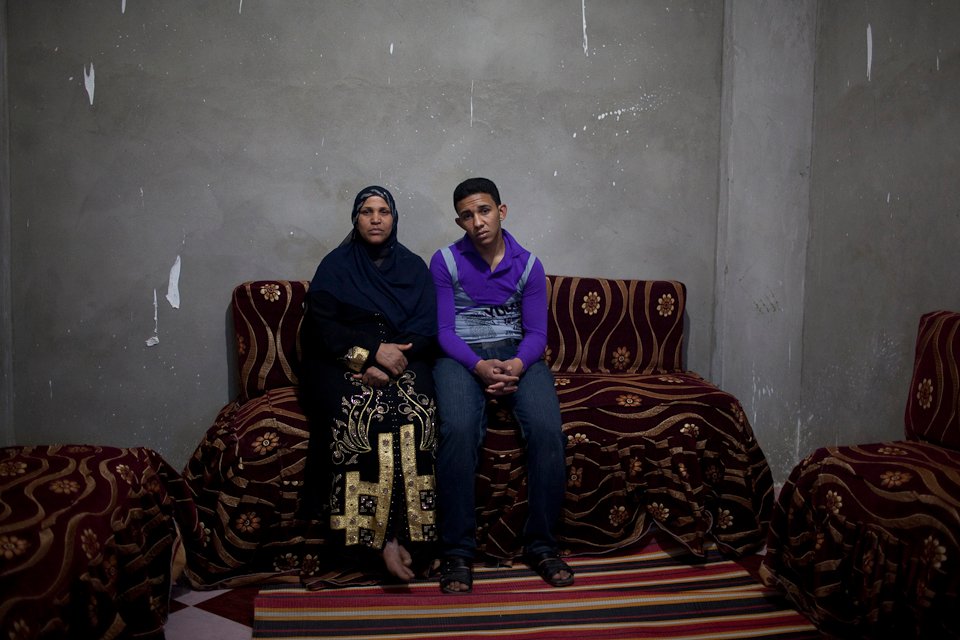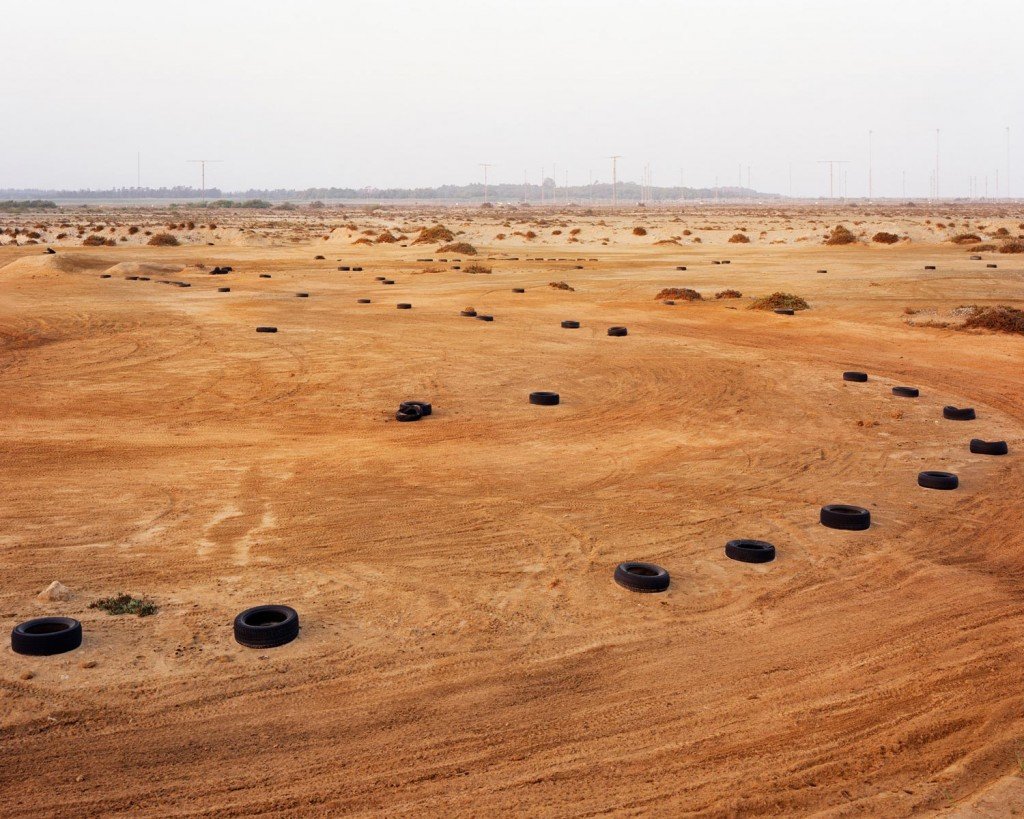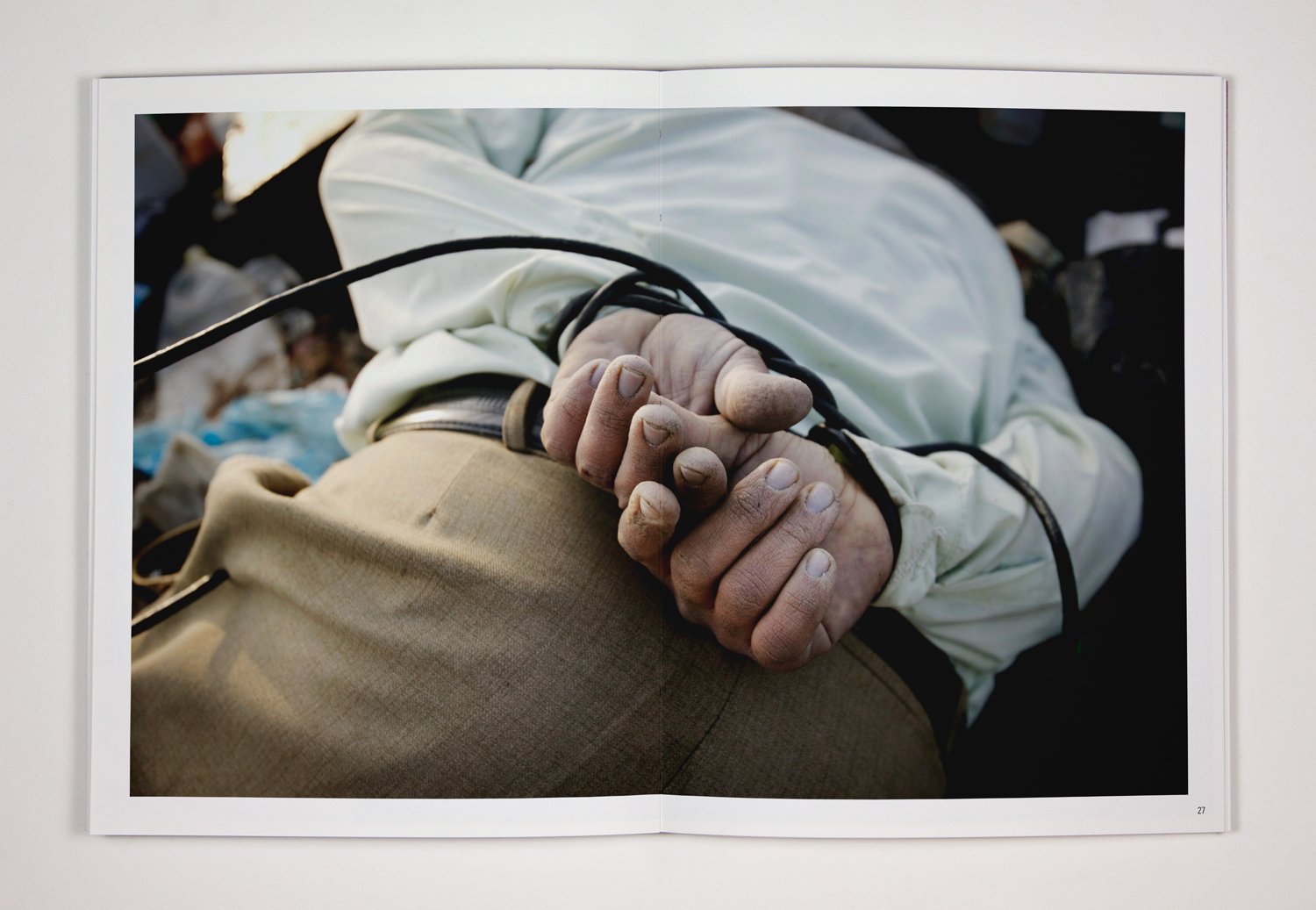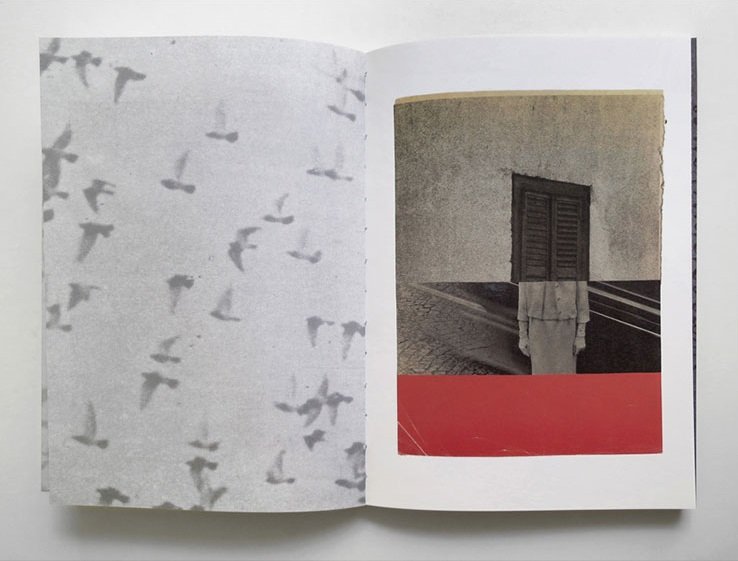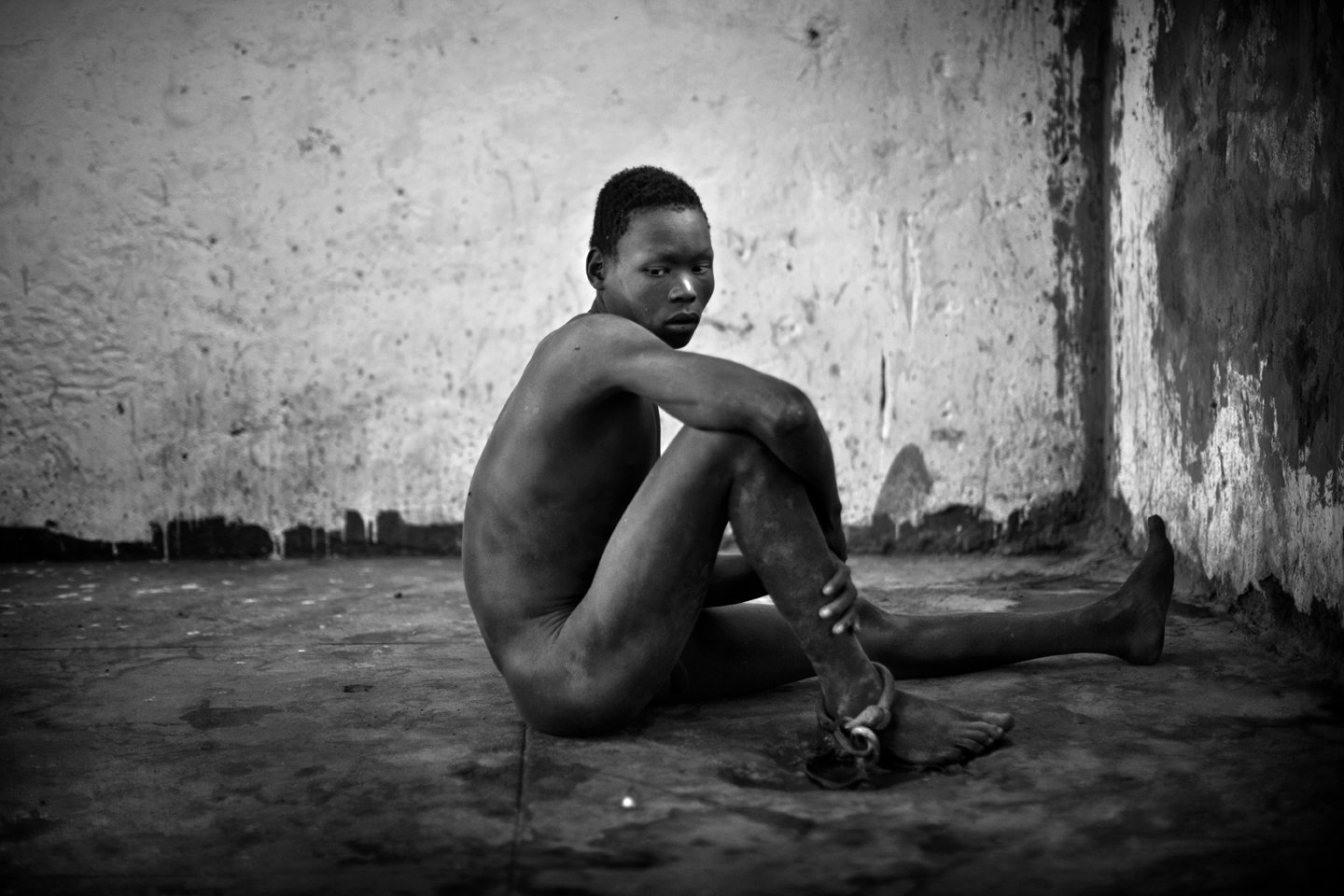Egypt –
As a result of the mass demonstrations that took place in the great cities of Egypt, many people accused of supporting these political uprisings are suffering unjust consequences. Since January 28, 2011, the Supreme Council of Armed Forces (SCAF), the strong arm of the Egyptian Military and now the prevailing Egyptian authority, has detained thousands of civilians without any access to lawyers and an opportunity to review the evidence against them. Since assuming power the SCAF has failed to discuss several serious human rights problems in the country and in many cases has exacerbated them. The purpose of this work is to spark a profound engagement that gives viewers a more nuanced understanding of the military trials, harsh treatments, and the daily strife among women and men including children in Egypt, and for those who are still serving a sentence.

Fayza Ali Aboelnow, holds a picture of her youngest daughter, Nashwa Rafeek Mahmoud, at the age of 12, home in Zakazik, Egypt. Nashwa, now 20, was abducted walking near Tahrir Square, July 2011, by a military officer who forced her to go with him where she was held inside against her will for two days. Nashwa escaped back home, within hours military bombarded the home and she was taken to Anater El Khyreya, a prison for women. There is chance she can serve up to 10 years in prison. Zakazik, Mar. 18, 2012
In January 2012, I embarked on a personal project to shed light on this very sensitive topic and for the second time since the Egyptian uprisings began, I found myself in downtown Cairo. Not photographing protests or demonstrations, rather searching for individuals who had been captured or abducted by the Supreme Council of Armed Forces and who were detained inside a military prison during sudden uprisings following the revolution. Some victims I have encountered have remained in detention for up to a year, along with serious violations of their human rights, acts of torture, as well as sustaining inhumane conditions. It also appears clear that a lot of these people were very young in age, not extreme protesters, happened to be nearby and was abducted at the hands of the Egyptian military. There have been cases of Egyptian children abducted by SCAF and prosecuted through Egypt’s adult criminal justice and state security courts, where some have been sentenced for up to 15 years in Tora security prison, and young women who have been forced to take virginity tests which is an act of torture in itself. Additionally, families of loved ones absconded by SCAF without warning are also victims, often provided with no information and who are still awaiting a trial date for their child that determines a future sentence. Several ex-political prisoners who were released are facing numerous difficulties such as receiving death threats and are constantly being watched by government security dressed in civilian clothing.

Hamde Said, 22, was captured in the streets of downtown Cairo, by SCAF, Dec. 2011, accused of criticizing the government. He was taken to C-28 military prison where he served 31 days. Hamde, was striped down, endured electric shocks, scalded with hot water and was badly beaten by the National Security. There is a chance he can serve up to 8 years in prison. Feb.12, 2012
This visual documentation aims to address issues such as social psychological scars, post-conflict experiences, feelings of abandonment, the transition back to normalcy and how individuals and families are coping with the distress and the struggles for their rights in the ongoing aftereffects of the Egyptian revolution. As I move forward with this ongoing project I can only hope that this work will reach a wide audience across the globe, as military abuse continues in Egypt. Through these photographs, I attempt to portray and uncover the intimate stories of some of these people, provoke question, and give voice to the voiceless among the thousands of detainees who are held behind bars in Egypt, unknown for weeks, months, and possibly years.
Written and Photography by Brian Driscoll

